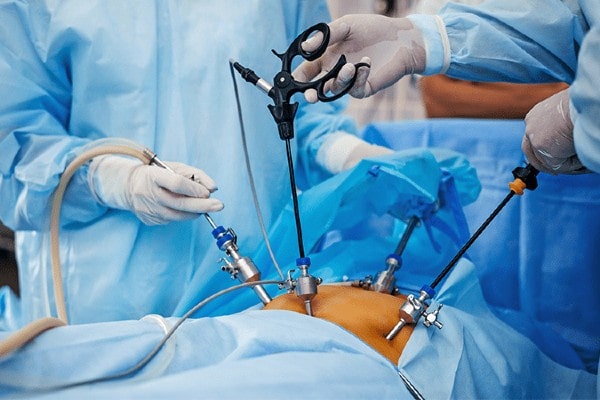Gastrointestinal (GI) surgery refers to procedures that treat various parts of the digestive system. Although the surgery itself can seem daunting, being well-informed is the first step toward a successful outcome. If you or a loved one is undergoing the procedure, having basic knowledge about the surgery can be helpful. This guide provides an overview of the types of procedures, key considerations, post-surgery management, and more, specifically for those navigating GI surgery in Dallas-Fort Worth.
An Introduction to GI Surgery
Gastrointestinal (GI) surgery encompasses a wide range of procedures targeting the digestive system, including the esophagus, stomach, intestines, liver, pancreas, and gallbladder. These surgeries are used to treat conditions such as cancer, hernias, gallstones, and inflammatory diseases. The procedures can vary from minimally invasive laparoscopic techniques to more complex open surgeries. The type of procedure performed depends on the diagnosis and may involve removing, bypassing, or modifying parts of the digestive tract.
Common Types of GI Surgeries
GI surgeries include various procedures designed to address specific conditions of the digestive system. Some common types of GI surgeries include:
- Anti-Reflux Surgery: This procedure addresses gastroesophageal reflux disease (GERD), where digestive acids flow back into the esophagus. The surgery strengthens the valve between the esophagus and stomach, preventing acid from backing up.
- Gastric Bypass: This surgery creates a small stomach pouch and reroutes it directly to the small intestine, which reduces food intake and nutrient absorption, leading to significant weight loss.
- Sleeve Gastrectomy: In this procedure, a large portion of the stomach is removed, leaving a smaller pouch. This limits food intake and helps reduce hunger.
- Pancreatectomy: This surgery involves removing all or part of the pancreas, typically to treat pancreatic cancer or severe pancreatitis.
- Hernia Repair: This surgery fixes weakened areas in the abdominal wall where tissues or organs protrude, often using open or laparoscopic techniques.

Key Considerations in GI Surgery
When undergoing GI surgery, several key considerations are crucial. Choosing an experienced surgeon with expertise in GI surgery is crucial. It’s important to take into account whether they offer open, laparoscopic, or robotic surgical options and state-of-the-art facilities. Additionally, consider the hospital’s reputation and reviews. You also discuss recovery plans, pain management strategies, and required dietary changes before, during, and after the surgery. Being fully aware of potential risks and having a solid support system in place can help ensure a smoother surgical experience.
The Role of Diet and Lifestyle in GI Surgery Success
Diet and lifestyle are crucial factors for the success of GI surgeries and recovery. Before undergoing the surgery, following a pre-operative diet plan can prepare your body for the procedure. After the surgery, adhering to a tailored diet plan suggested by your surgeon is essential for healing, faster recovery, and avoiding complications. This typically involves eating smaller portions of food at frequent intervals and avoiding certain foods. Engaging in physical exercise and maintaining a proper sleep cycle also contribute to a healthy lifestyle. Additionally, avoiding smoking and drinking, and consulting a therapist to manage stress levels, are important for a smoother recovery and better surgical outcomes.
Managing Pain and Complications After GI Surgery
Just like any other surgery, effective pain and complication management is essential. Pain relief is typically managed with prescribed medications, but it is crucial to follow your doctor’s guidelines to avoid overuse and manage any side effects. Watch out for complications such as infections, bleeding, and gastrointestinal difficulties and report them to your healthcare professional immediately. Adhering to post-surgery care instructions, including wound care and dietary advice, helps prevent complications and promotes quick recovery. Regular follow-up appointments are also necessary to ensure proper healing and address any emerging concerns.
Conclusion
Understanding the basics of gastrointestinal (GI) surgery can make a significant difference in making a decision and preparing for the procedure. In the Dallas-Fort Worth area in Texas, being familiar with the surgical options and surgeons available can greatly influence the benefits patients expect to receive from the procedure. By staying well-informed about the procedures, adhering to dietary guidelines, and preparing for a comprehensive recovery, patients can navigate their surgical journey with confidence and ease. If you or your loved ones are considering gastrointestinal surgery in the DFW region or anywhere else in Texas, consult an experienced surgeon to discuss your eligibility, risks, and benefits.













